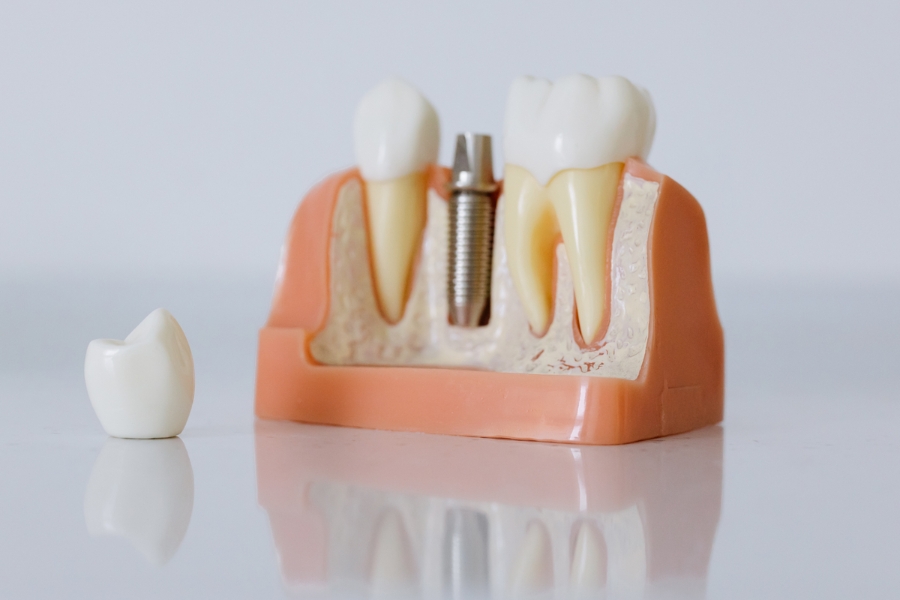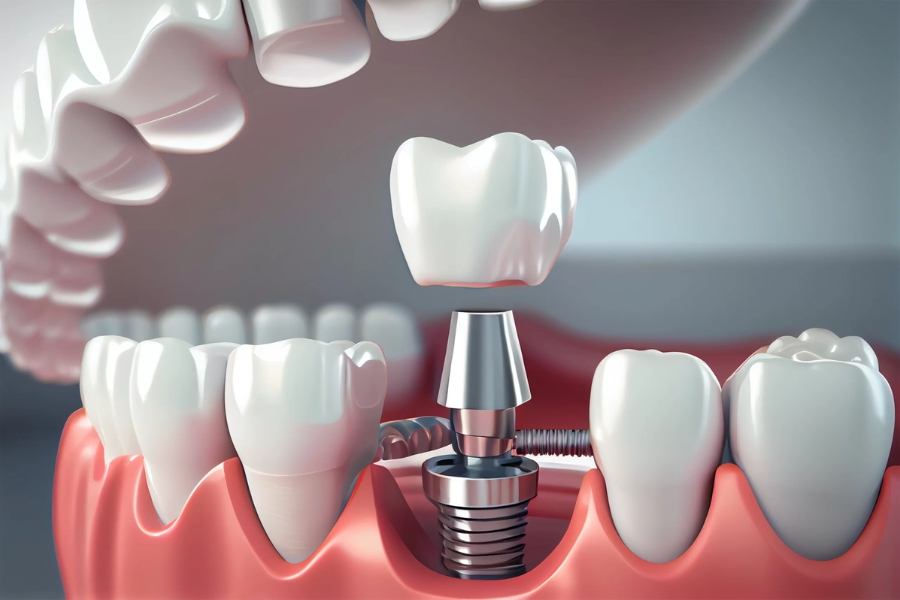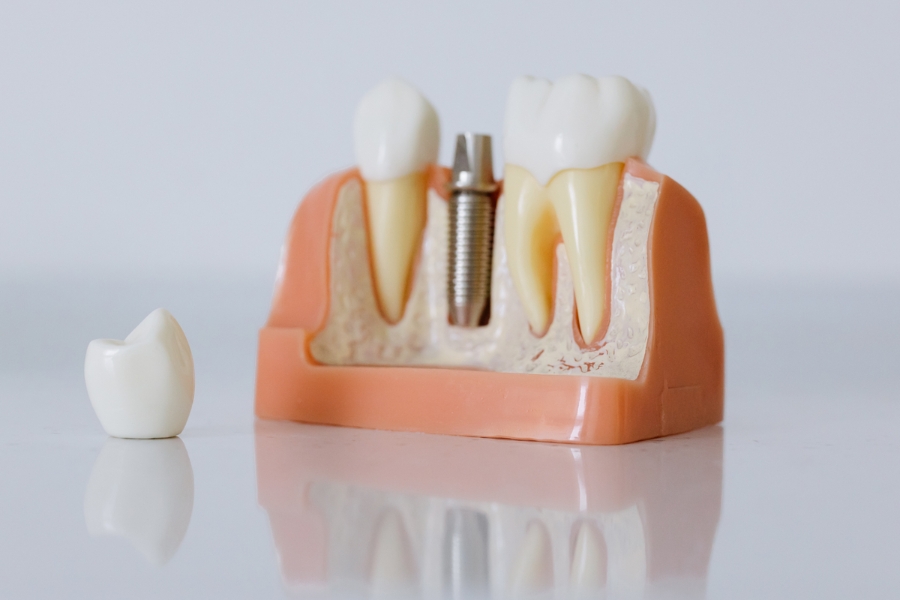Why Dental Implants Are the Best Option for Tooth Replacement
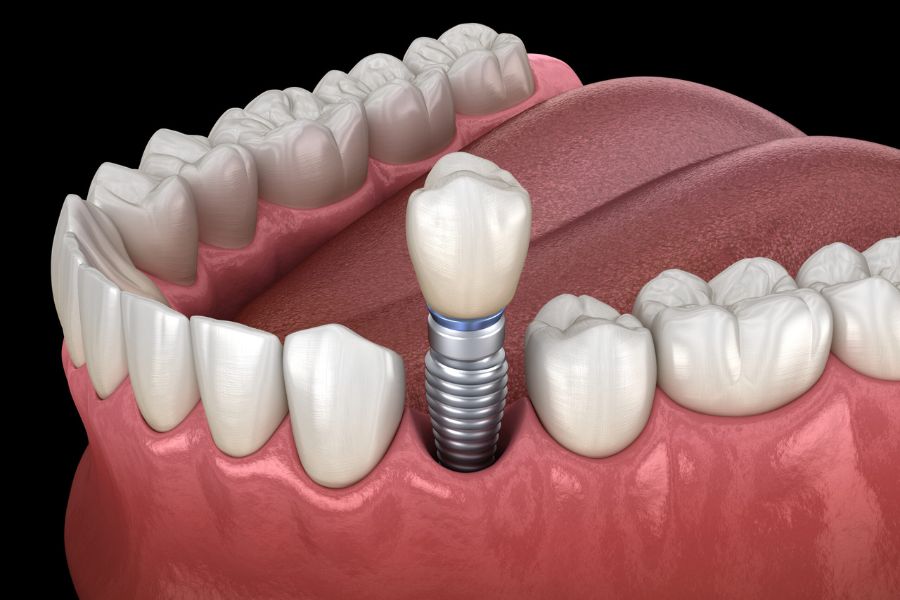
Tooth loss is a common issue that many people face due to various reasons such as decay, injury, or disease. In the past, the only options for replacing missing teeth were dentures or bridges. However, with advancements in dental technology, dental implants have emerged as the superior choice for tooth replacement. This comprehensive guide will explore why dental implants are the best option for replacing missing teeth, covering their benefits, the procedure, and what to expect during recovery.
What Are Dental Implants?
Dental implants are artificial tooth roots made of titanium that are surgically placed into the jawbone. These implants provide a strong foundation for fixed or removable replacement teeth that are made to match your natural teeth. The procedure involves placing the implant into the jawbone, allowing it to fuse with the bone over time, a process known as osseointegration. Once the implant has bonded with the jawbone, an abutment is placed on top of the implant, which holds the replacement tooth or crown.
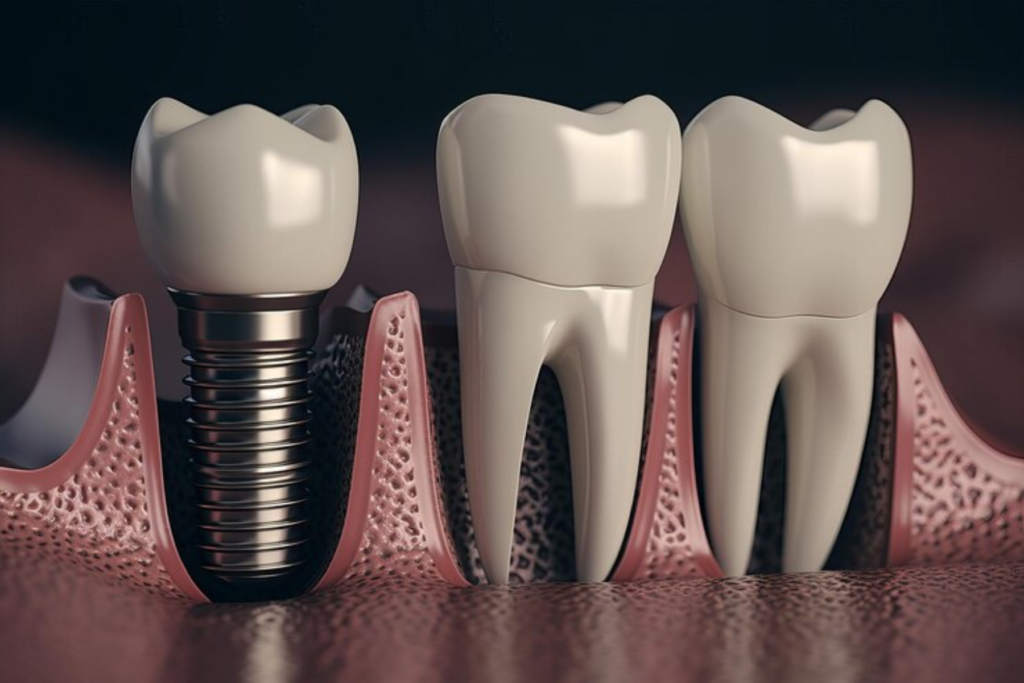
Benefits of Dental Implants
1. Natural Look and Feel
One of the most significant advantages of dental implants is their ability to mimic the look and feel of natural teeth. The crown that is placed on the implant is custom-made to match the color, shape, and size of your existing teeth. This ensures that the implant blends seamlessly with your natural teeth, giving you a beautiful and natural-looking smile.
2. Improved Functionality
Dental implants function just like natural teeth. Unlike dentures, which can slip or cause discomfort, implants are securely anchored in the jawbone, providing stability and strength. This allows you to eat, speak, and smile with confidence without worrying about your replacement teeth moving or falling out.
3. Durability and Longevity
Dental implants are designed to be a long-term solution for tooth replacement. With proper care and maintenance, implants can last a lifetime. This makes them a cost-effective option in the long run, as you won’t need to replace them as frequently as dentures or bridges.
4. Bone Health Preservation
When a tooth is lost, the jawbone in the empty space begins to deteriorate due to lack of stimulation. Dental implants are the only tooth replacement option that helps stimulate bone growth and prevent bone loss. The implant acts as a natural tooth root, providing the necessary stimulation to maintain bone density and strength.
5. Improved Oral Health
Unlike dental bridges, which require reducing adjacent teeth, dental implants do not affect your surrounding natural teeth. This helps to preserve your overall oral health and maintain the integrity of your existing teeth. Additionally, implants are easy to care for and require the same oral hygiene practices as natural teeth, including brushing, flossing, and regular dental check-ups.
6. Enhanced Comfort
Since dental implants become a part of your jawbone, they eliminate the discomfort and irritation often associated with removable dentures. Implants are stable and do not require adhesives or special cleaning solutions, making them a more comfortable and convenient option for tooth replacement.
The Dental Implant Procedure
Initial Consultation
The first step in the dental implant process is an initial consultation with your dentist or oral surgeon. During this visit, your dental professional will assess your oral health, take X-rays or 3D images, and discuss your medical history. This evaluation helps determine if you are a suitable candidate for dental implants.
Treatment Planning
Once you are deemed a suitable candidate, a customized treatment plan is created based on your specific needs. This plan outlines the number of implants required, the type of implants, and the timeline for the procedure.
Tooth Extraction (If Necessary)
If you have a damaged or decayed tooth that needs to be replaced with an implant, the tooth will need to be extracted first. In some cases, the implant can be placed immediately after the extraction, while in others, the site may need time to heal before the implant can be placed.
Implant Placement
During the implant placement procedure, the dental implant is surgically inserted into the jawbone. This is typically done under local anesthesia, although sedation options are available for those who experience anxiety or discomfort. The implant is placed deep into the bone to ensure stability and strength.
Osseointegration
After the implant is placed, a period of healing is required to allow the implant to fuse with the jawbone. This process, known as osseointegration, usually takes several months. During this time, the bone grows around the implant, anchoring it securely in place.
Abutment Placement
Once osseointegration is complete, an abutment is placed on top of the implant. The abutment serves as a connector between the implant and the replacement tooth. This minor surgical procedure is typically performed under local anesthesia.
Placement of the Crown
The final step in the dental implant process is the placement of the custom-made crown. The crown is designed to match the color, shape, and size of your natural teeth, ensuring a seamless and natural-looking result. The crown is attached to the abutment, completing the dental implant process.
What to Expect During Recovery
Immediate Post-Operative Care
After the implant placement procedure, you may experience some swelling, bruising, and discomfort in the gums and jaw. These symptoms are normal and can be managed with over-the-counter pain medications and ice packs. Your dentist will provide you with detailed post-operative care instructions to ensure a smooth recovery.
Healing Period
The healing period for dental implants can vary depending on the individual and the complexity of the procedure. On average, it takes about three to six months for the implant to fully integrate with the jawbone. During this time, it is essential to maintain good oral hygiene and follow your dentist’s recommendations to ensure successful healing.
Follow-Up Appointments
Regular follow-up appointments with your dentist are crucial during the healing period. These visits allow your dentist to monitor the progress of osseointegration and address any concerns or complications that may arise. Your dentist will also provide guidance on how to care for your implants and maintain optimal oral health.
Maintaining Dental Implants
Oral Hygiene
Maintaining good oral hygiene is essential for the longevity and success of dental implants. Brush your teeth at least twice a day with a soft-bristled toothbrush and fluoride toothpaste. Floss daily to remove plaque and debris from between your teeth and around the implant. Consider using an antimicrobial mouthwash to reduce bacteria and promote oral health.
Regular Dental Check-Ups
Routine dental check-ups are crucial for monitoring the health of your dental implants and detecting any potential issues early. Your dentist will perform professional cleanings and examinations to ensure your implants and surrounding teeth remain healthy.
Avoiding Harmful Habits
Certain habits, such as smoking, chewing ice, and using your teeth as tools, can negatively impact the success of dental implants. It is important to avoid these habits to protect your implants and maintain your oral health.
Healthy Diet
A balanced diet rich in essential nutrients can promote the health of your dental implants and overall oral health. Incorporate foods high in calcium, vitamin D, and phosphorus to support bone health. Avoid sugary and acidic foods and beverages that can contribute to tooth decay and gum disease.
Dental implants offer a superior solution for tooth replacement, providing a natural look and feel, improved functionality, and long-term durability. With benefits such as bone health preservation, enhanced comfort, and improved oral health, dental implants are the best option for those seeking to replace missing teeth. The dental implant procedure involves several stages, including implant placement, osseointegration, abutment placement, and crown placement, each contributing to the success of the implant.
Maintaining dental implants requires diligent oral hygiene, regular dental check-ups, and a healthy lifestyle. By following your dentist’s recommendations and taking proper care of your implants, you can enjoy a beautiful and functional smile for a lifetime.
If you are considering dental implants, schedule a consultation with your dentist to discuss your options and determine the best treatment plan for your needs. With dental implants, you can restore your smile and confidence and enjoy the many benefits of this advanced tooth replacement solution.


